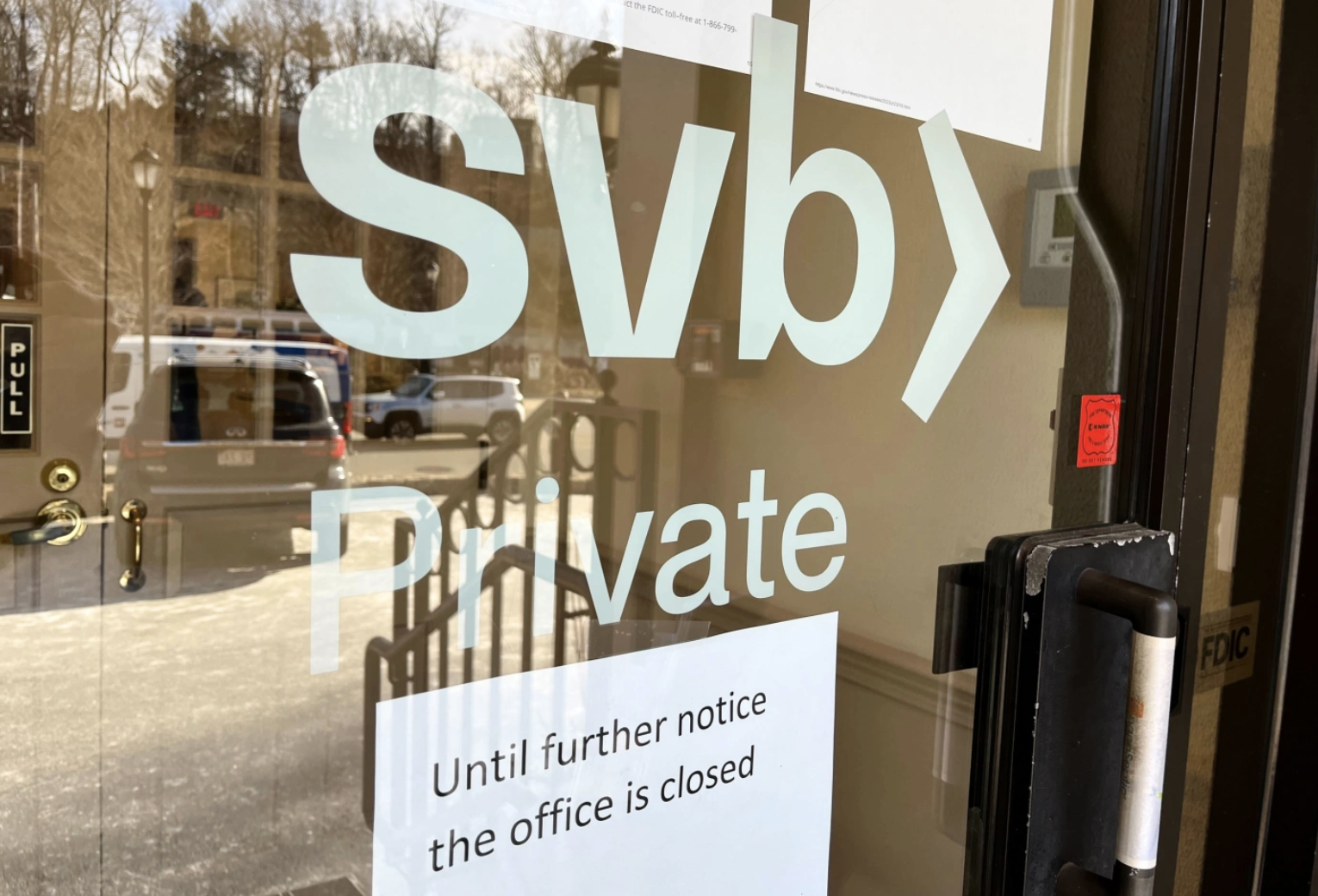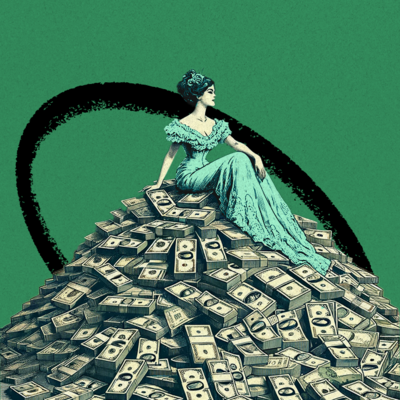
A Dearth of Secrets, an Excess of Capital: SVB’s Explosion
We may be entering a more ruthless era in tech
March 13, 2023
It has been said that there are only two ways to make money in business: bundling and unbundling. This is wrong. Instead, the past few days of panic, collapse, panic again, stress, scare, and sweet relief have illustrated a third way to make money: secrets. Secrets are when you know something no one else does and take advantage of that information to make a profit. But a secret isn’t forever. Eventually, word gets out, a secret transforms into common knowledge, and returns go to zero.
What’s happened these past few days is a story about a little-understood secret converting to mass hysteria in record time.
For the blissfully unaware, the tech sector has just gone through a collective period of trauma that began with the collapse of Silicon Valley Bank (SVB). If you haven’t found a new wrinkle, gray hair, or stress ulcer over the last 72 hours, consider yourself lucky. For now, it appears that depositors will be made whole and the sector will be OK. However, as I type this at 7 a.m. EST, shares of First Republic Bank, a regional bank closely affiliated with the tech sector, are down 66.6% in premarket trading, so we may not be out of the woods yet.
The magical thing about secrets as a business strategy is that what counts as a secret is not just things that are whispered in the back of smoky rooms. A secret can also be a piece of information that is totally available to anyone in the general public as long as it goes unnoticed. Or as Peter Thiel describes it, “A secret is an important truth about the world that other people don’t realize.”
After all, the signs of SVB’s potential implosion were there last year. However, all it took was a few VCs to act on it before the whole thing spiraled out of control. Here is a grossly oversimplified version of events:
- SVB gets lots of cash deposits over the past two years from startups and VCs
- They use that money to buy dumb, underperforming securities like mortgages with a 1.75% interest
- Some stock sales happen in February 2023 from the CEO that, in retrospect, could be “problematic”
- SVB’s customers start pulling out cash faster than SVB can handle
- It gets so bad that SVB ends up being technically insolvent last September
This is when things really start to pop off. The secret begins to leak out—SVB may be in trouble:
- People begin to notice SVB’s struggles from a SeekingAlpha post on December 19, a viral tweet thread in January, and a newsletter post from Byrne Hobart on February 23, 2023
- Pretty much every VC I know starts to pay very, very close attention to SVB earnings
- On March 8, SVB has to raise capital to help resolve the insolvency issue. It communicates why this is happening—poorly.
- Peter Thiel, USV, and Coatue send out messages to portfolio companies to pull out funds
- Tech Twitter catches word of this and mass hysteria spreads through group chats
- A bank run happens on Thursday, March 9
- SVB collapses and is taken over by the FDIC on Friday, March 10
- Sunday, March 12, the Federal Reserve guarantees depositors, meaning people who banked there will be made whole
Venture capital has always been an industry that feasts on secrets. Public market investors typically compete on relatively similar datasets, using carefully audited public filings as their primary data source for analysis. Any insider trading is strictly illegal. In contrast, private technology investing thrives on non-public information.
This dynamic depends on an inner whisper network of power. The top funds will see the top deals and generate the top returns. They swap secrets and Powerpoints like teenagers swapping spit under the bleachers at a pep rally (in some cases literally—I have known VC associates to try to date their peers at other firms for access to deal flow). This isn’t necessarily a bad thing: Apple was built off of stolen secrets from Xerox. Loosely held secrets have long been the shadow currency that has been a key to the technology industry’s success.
Silicon Valley Bank was an institution perfectly built to serve this loose coalition of VC frenemies, their portfolio companies, and importantly, their secrets. SVP would act as a sort of consigliere, offering mortgages to founders, emergency bridge loans to companies, and a whole suite of additional products, especially for those startups that were referred to it. Again, not a bad thing. Startup founders and investors deserve banking services that meet their needs, just like everyone else. All of this cooperation resulted in the greatest wealth generation machine seen in modern times.
Over the past few years, this secret sharing dynamic has shifted. Venture capital has become a much more competitive industry. As Doug Leone of Sequoia, one of the best VC investors of all time, put it, “[VC] has gone from a high-margin cottage industry to a lower-margin mainstream business.”
Elbows have become sharper, deals have become more hotly contested, and simmering rivalries have flourished underneath the surface. Said another way: There are no longer enough secrets to go around. The same information is still available, such as when a hot startup is about to raise, but it has to be spread across larger and larger pools of capital.
The SVB collapse is the first time I’ve seen the industry fully descend into trench warfare. When Thiel, USV, and Coatue started advising companies to pull out, other VCs took to Twitter. The coalition of frenemies was broken and there was open discussion of “bad actors.” In my DMs and texts, I had VCs ranting about how “messed up” and how “evil” the funds who had first fled SVB were. Frankly, I’m not at the point where I feel I can moralize their decisions. They were worried about a bank run, told their companies their concerns, and then were right. At the end of the day, most of the blame sits with the SVB team. They ran their bank exceptionally poorly and caused everyone to panic. With the Fed saving depositors, it may have hurt these first mover VCs in the long run, but their actions in the moment were understandable.
The speed of secrets
On October 24, 1929, the stock ticker was broken. Trading volume was so heavy that the fledgling telegraph-based technology couldn’t keep up. The price displayed to investors was delayed by 15 minutes, then 48, then 92. Panic swept through the traders crowded together on the trading floors of Chicago and New York. It was Black Thursday, the starting gun to the Great Depression. There was such a volume of information that people couldn’t comprehend it and the result was panic. Even then, it still took another five days for the stock market to fully crash.
To me, the most remarkable part of this whole experience has been the speed at which it happened. It went from a small group of insiders sending emails to their portfolio companies to $45B in outflows in less than a day. The speed of the crash is something I didn’t know was possible for an institution that was regulated and of this size.
We are looking at secrets being used at the speed of the internet. During the last major banking crisis in 2009, Twitter only had 59M total users, cloud computing was only at <$100B in spend, and the iPhone was only three years old. Now any of Twitter's 237M+ users can log into their bank’s cloud portal on their smartphone and transfer millions instantly. The SVB debacle is a story of a business that thought its relationships would protect them. The SVB CEO was so confident of his power that he thought he could just go on a conference call and tell VCs: “We have been long-term supporters of you—the last thing we need you to do is panic.”
What happens when there aren’t enough secrets to go around? Loyalty goes out the door. SVB was the first victim, but it certainly won’t be the last. This may potentially be the start of a new era in technology—one of secrets less willingly shared and conflict more easily entered.
Find Out What
Comes Next in Tech.
Start your free trial.
New ideas to help you build the future—in your inbox, every day. Trusted by over 75,000 readers.
SubscribeAlready have an account? Sign in
What's included?
-
Unlimited access to our daily essays by Dan Shipper, Evan Armstrong, and a roster of the best tech writers on the internet
-
Full access to an archive of hundreds of in-depth articles
-
-
Priority access and subscriber-only discounts to courses, events, and more
-
Ad-free experience
-
Access to our Discord community




Comments
Don't have an account? Sign up!